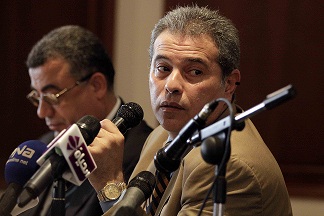CAIRO: The traces of uranium discovered in Egypt were not an unusual occurrence, according to a diplomat close to the International Atomic Energy Agency (IAEA).
“It is not that unusual for the Agency to find traces of nuclear material in environmental samples at nuclear sites in a country. As needed, these are followed up by the Department of Safeguards, said the diplomat, who spoke on condition of anonymity.
Reuters had obtained an IAEA report last Wednesday which indicated that traces of enriched uranium had been found at the Inshaas site where Egypt houses its nuclear facility.
“The SIR is a standard report provided to the Board each year describing the status of safeguards verification in all countries. As part of the routine application of safeguards in Egypt, IAEA inspectors have taken environmental samples, the diplomat said.
The IAEA declined to comment on the issue when contacted by Daily News Egypt, indicating that the report was a restricted document of the agency’s governing board.
Egypt offered an explanation to what came in the SIR report, saying that the uranium “could have been brought into the country through contaminated radioisotope transport containers, according to the leaked IAEA report.
President of the Egyptian Atomic Energy Agency Mohammed El-Kolali said, “The inspectors found particles of enriched uranium and asked us for an explanation. We told them they must have come from those containers.
Environmental swipe samples were taken at the site during 2007 and 2008.
Further tests are being conducted to ascertain whether the uranium was weapons grade, that is, rich enough to be used in a nuclear bomb.
Foreign Ministry spokesman Hossam Zaki contested reports of the discovery, labeling it “fallacious and old. He said in a statement that “the IAEA always affirms – in its reports – the peaceful nature of Egypt’s nuclear activities.
In the statement, Zaki expressed his astonishment “that media sources obtained information included in the IAEA report, which is expected to be announced in its meeting in June 2009, the matter that questions the motives behind leaking such issues.

